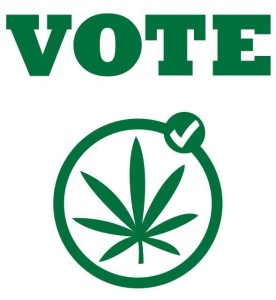In what is apparently a first in the nation, the owner of a medical marijuana dispensary has been appointed mayor of a small town north of the Bay Area.
Sebastapol, CA in Sonoma County, population 7,500, is known for its left-leaning politics, its commitment to the environment and, now, its fearlessness in choosing a mayor whose life’s work is an overt violation of federal criminal law.
 The Sebastapol City Council voted Dec. 3 to appoint Robert Jacob mayor, apparently making him the first American mayor – and possibly the highest-ranking elected official in the country – who openly participates in the marijuana trade.
The Sebastapol City Council voted Dec. 3 to appoint Robert Jacob mayor, apparently making him the first American mayor – and possibly the highest-ranking elected official in the country – who openly participates in the marijuana trade.
A statement from the Oakland-based advocacy group Americans for Safe Access called it a “historic, unprecedented vote” and said it would bring “additional legitimacy to the patient community.”
It will also make clear that times are changing: Voters and local leaders mean it when they tell the federal government they want drug policy made at home, not in Washington, D.C. Nearly 60 percent of Americans now favor outright legalization of pot, according to a recent Gallup poll, and in liberal environments like California, people like Jacob are considered community leaders, not criminals.
Jacob is the founder and executive director of Peace in Medicine, a collective that runs dispensaries in Sebastopol and Santa Rosa, about five miles away. He was a key player in writing the city’s medical marijuana ordinance, which is held up as a model for other California municipalities.
“Many people see me as the medical cannabis guy, and true, this is one of my areas of expertise,” he said. “But most of my adult life has been spent in service; to people with HIV/AIDS, homeless youth, populations who are not treated as equals, such as the LGBTQ community, the poor and their need for affordable housing, and immigrants.”
Jacob’s appointment can be seen as something of a bright spot after more than a year of mostly bad news for medical marijuana and its proponents in California. There are signs the situation is starting to improve, and the community’s acceptance of a marijuana businessman like Jacob could suggest growing public support for dispensaries – the kind of support that could translate to votes for full legalization in 2014 or 2016.
This spring the State Supreme Court ruled that municipalities may ban all dispensaries within their borders. More recently, the Court of Appeal for the Third District, which covers the Sacramento Valley and northeastern California, held that communities can even ban cannabis cultivation, despite the 1996 medical pot law that made it legal.
“There is no right – and certainly no constitutional right – to smoke marijuana,” wrote appellate court Justice Elena J. Duarte. Localities can ban all weed, she wrote, even if it’s allowed by state law.
More than 200 cities, counties and towns have implemented total bans on dispensaries, with new bans starting to appear on cultivation.
But at the same time, a growing number of cities across the state are reconsidering their restrictions. Long Beach, Santa Monica, San Jose and other communities are seeking to join Los Angeles, San Francisco and Oakland in successfully regulating pot shops rather than banning them.
And legalization of recreational weed is likely to be on the ballot next year or in 2016. If that passes – and polls already suggest it will – concerns over dispensaries could become a thing of the past. And Jacob’s appointment could be remembered as a minor milestone on the way there.
 California Marijuana Market Breaking "Marijuana News" from CA
California Marijuana Market Breaking "Marijuana News" from CA





